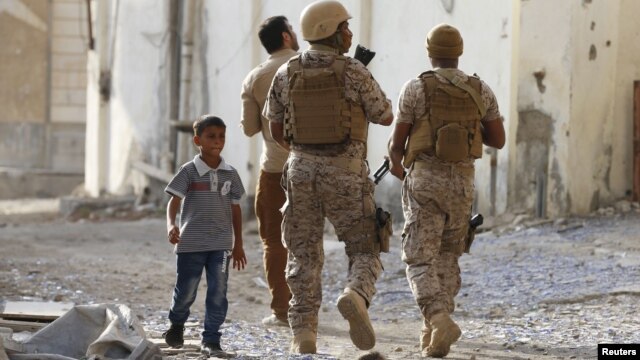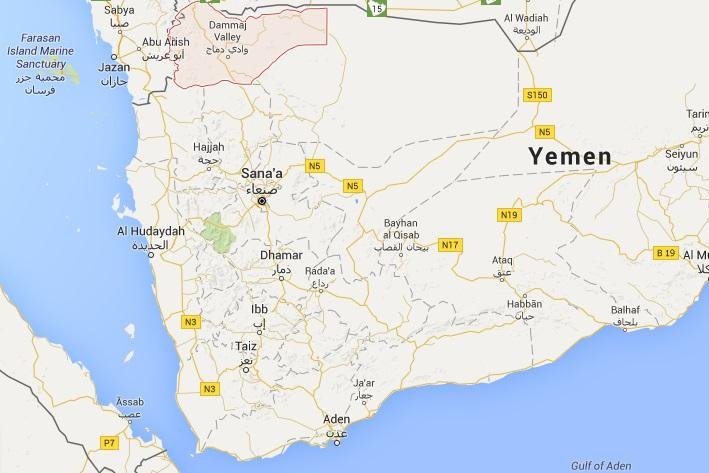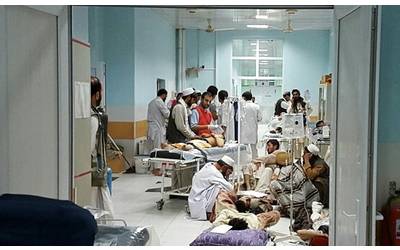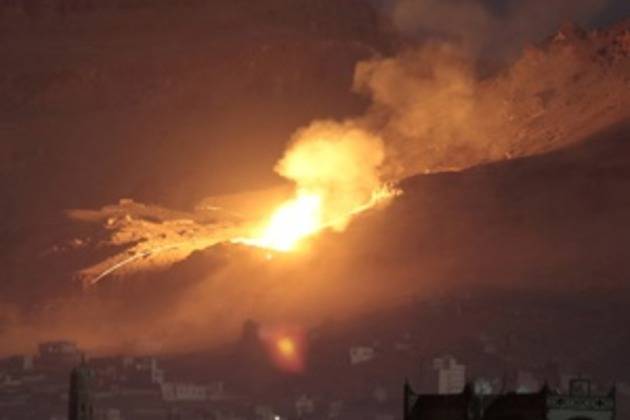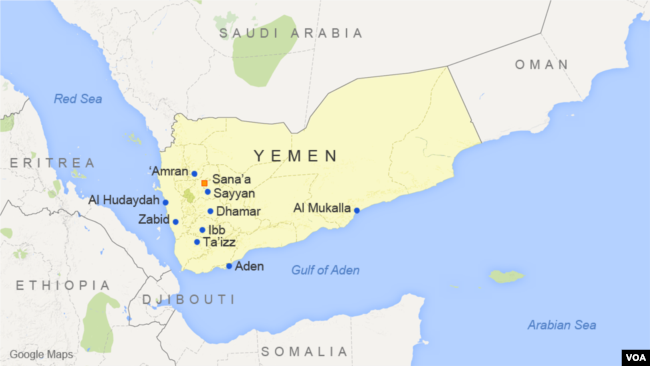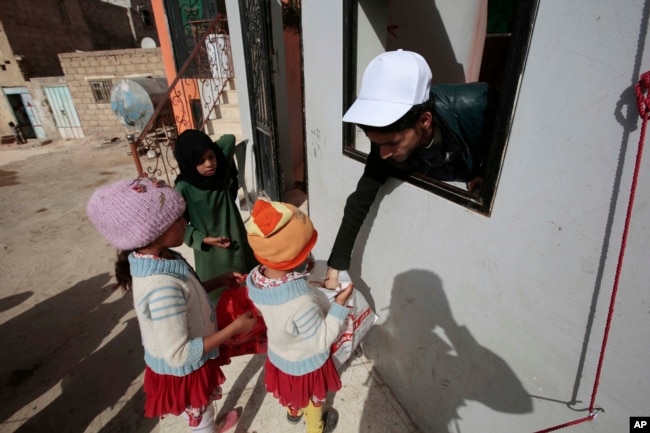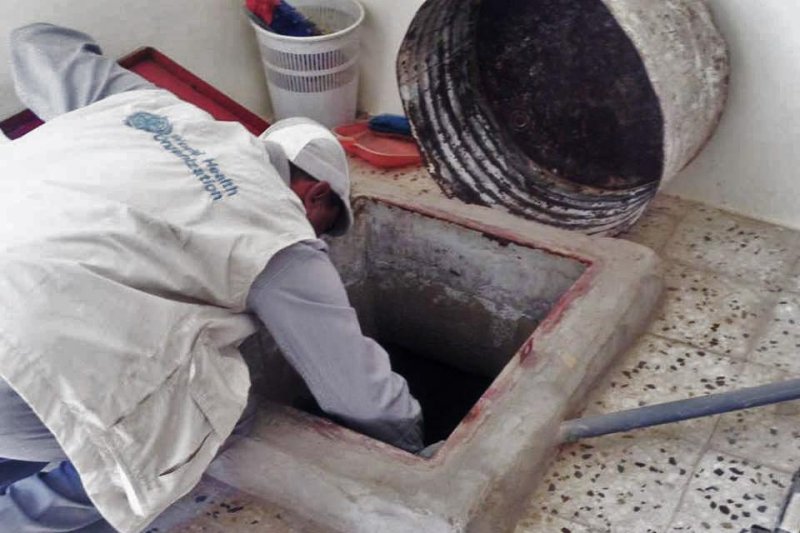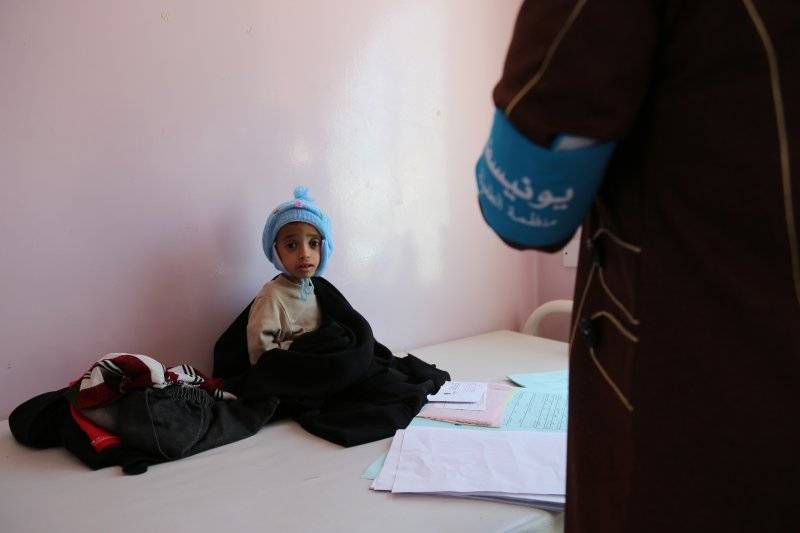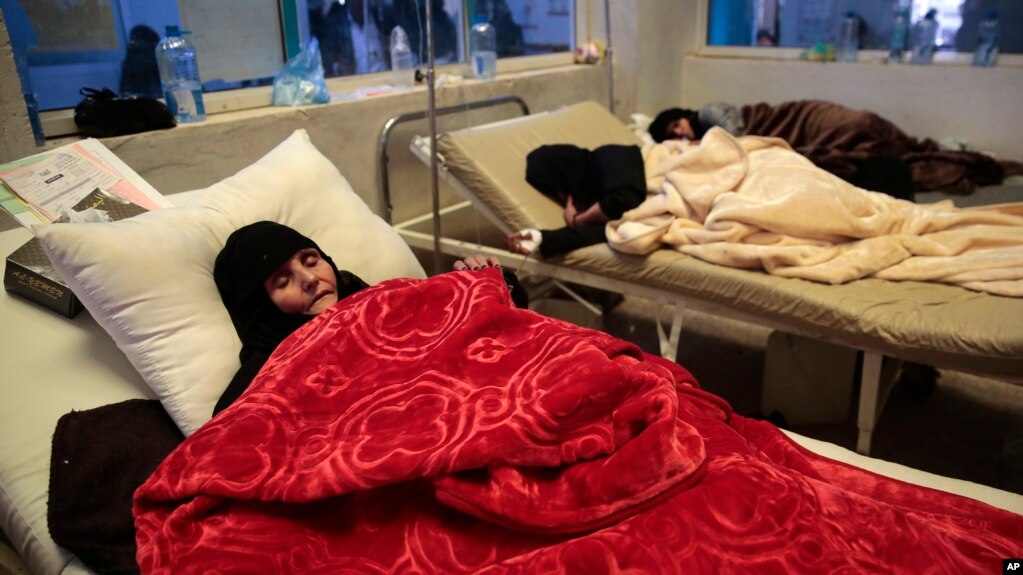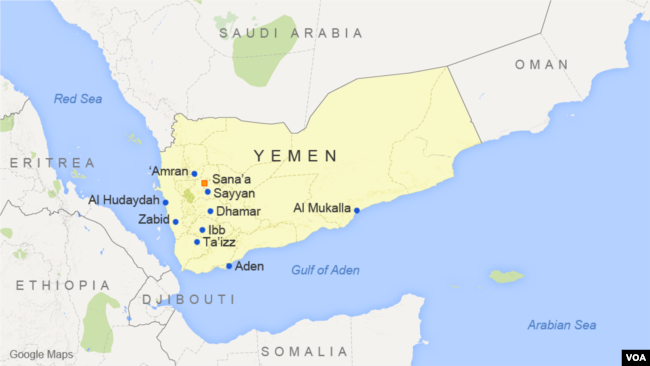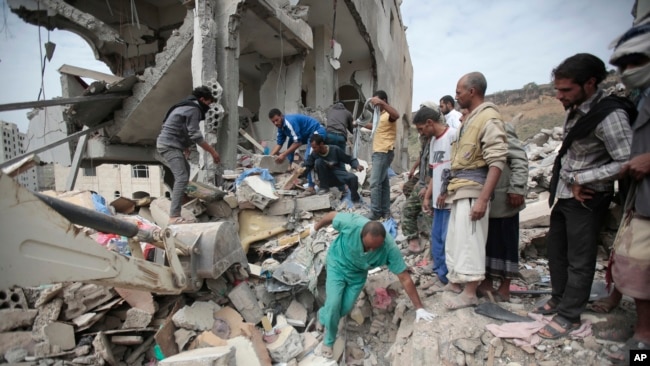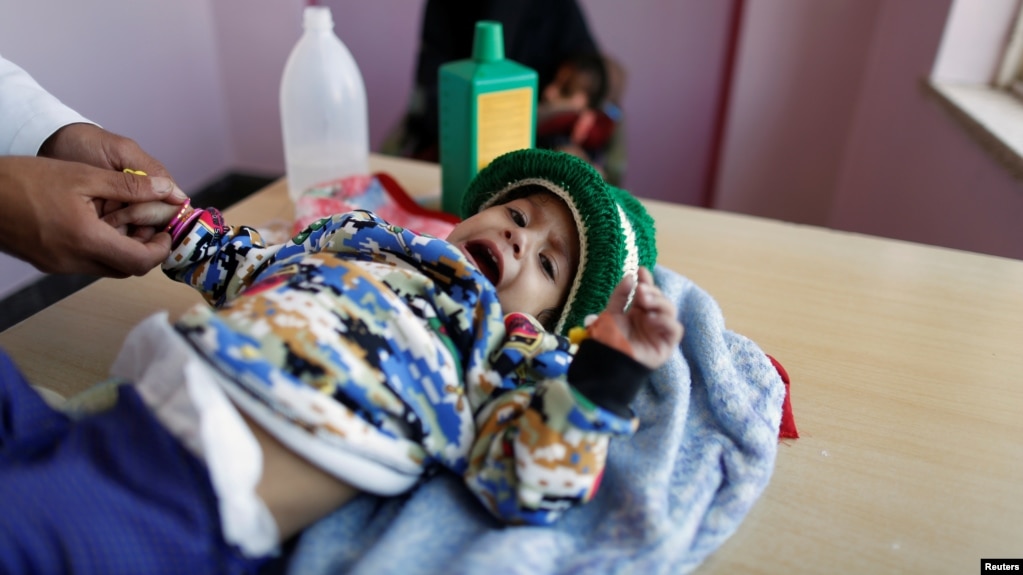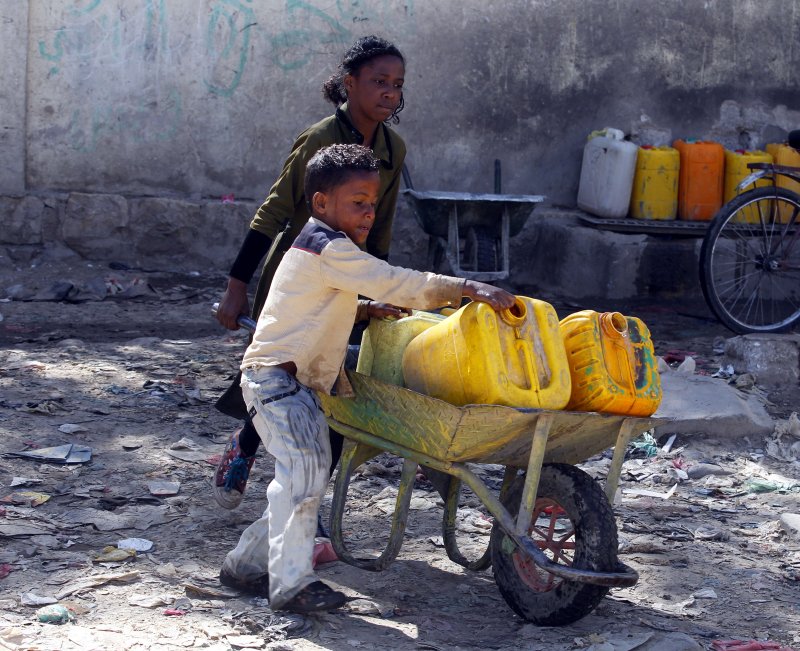Even thought both sides have committed violations of the cease-fire, the aid will start flowing in to the people.
Yemen: aid agencies step in
Relief arrives as ceasefire between Houthi rebels and Saudi coalition holds

Yemeni young girls smile from the windows of a traditionnal house in the capital Sanaa's old city. The United Nations calls on all parties to the Yemen conflict to respect a humanitarian ceasefire in a bid to boost sorely-needed aid shipments. Photo: AFP/Getty Images
By Louisa Loveluck, Cairo
11:00PM BST 14 May 2015
Relief agencies began distributing life-saving aid across Yemen on Thursday as the country’s tenuous ceasefire held for a second day.
The war between Houthi rebels and a Saudi-led coalition of warplanes,bolstered by local militia on the ground, has killed more than 1,400 people since March 19. The Houthis seized Yemen’s capital, Sanaa, earlier this year, forcing the internationally-backed president into exile, and drawing the ire of his powerful allies in Riyadh.
At least 5,000 have been wounded in the fighting, sparking what the United Nations has called a humanitarian ‘catastrophe’. The violence has devastated Yemen’s already-crumbling infrastructure.
The UN says it will send food rations for 750,000 people during the course of the five-day ceasefire. The first aid shipment to dock in the port city of Hodeidah carried 120,000 litres of fuel. Despite the heavy flow of casualties into Yemen’s hospitals, medical units across the country have closed whole units due to widespread fuel shortages.
Continue reading at:
http://www.telegraph.co.uk/news/worldnews/middleeast/yemen/11607040/Yemen-aid-ag
Yemen: aid agencies step in
Relief arrives as ceasefire between Houthi rebels and Saudi coalition holds

Yemeni young girls smile from the windows of a traditionnal house in the capital Sanaa's old city. The United Nations calls on all parties to the Yemen conflict to respect a humanitarian ceasefire in a bid to boost sorely-needed aid shipments. Photo: AFP/Getty Images
By Louisa Loveluck, Cairo
11:00PM BST 14 May 2015
Relief agencies began distributing life-saving aid across Yemen on Thursday as the country’s tenuous ceasefire held for a second day.
The war between Houthi rebels and a Saudi-led coalition of warplanes,bolstered by local militia on the ground, has killed more than 1,400 people since March 19. The Houthis seized Yemen’s capital, Sanaa, earlier this year, forcing the internationally-backed president into exile, and drawing the ire of his powerful allies in Riyadh.
At least 5,000 have been wounded in the fighting, sparking what the United Nations has called a humanitarian ‘catastrophe’. The violence has devastated Yemen’s already-crumbling infrastructure.
The UN says it will send food rations for 750,000 people during the course of the five-day ceasefire. The first aid shipment to dock in the port city of Hodeidah carried 120,000 litres of fuel. Despite the heavy flow of casualties into Yemen’s hospitals, medical units across the country have closed whole units due to widespread fuel shortages.
Continue reading at:
http://www.telegraph.co.uk/news/worldnews/middleeast/yemen/11607040/Yemen-aid-ag


